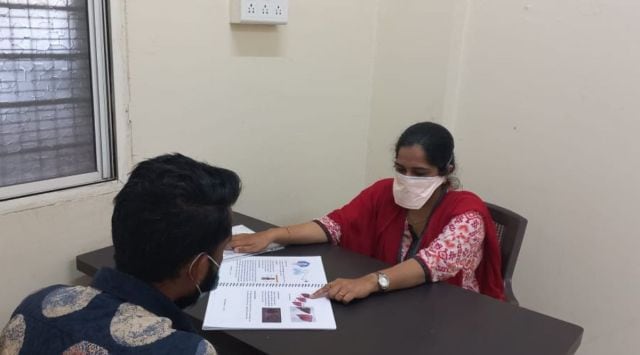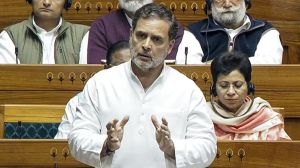Click here to join Express Pune WhatsApp channel and get a curated list of our stories
Pune study shows ‘promising results’ in bid to prevent TB among those at most risk
The 18-month study was undertaken by researchers from B J Government Medical College (BJGMC) and Johns Hopkins University (JHU) to assess the WHO-recommended 3HP regime among People Living with HIV/AIDS (PLHIV), children living with HIV and child contacts of pulmonary TB patients.
 Funded by global health initiative UNITAID, the study commenced in December 2021.(Express Photo)
Funded by global health initiative UNITAID, the study commenced in December 2021.(Express Photo) Doctors and researchers in Pune are confident that a new study conducted at B J Government Medical College and Sassoon General Hospital will go a long way in preventing the occurrence of tuberculosis (TB) among those at most risk – from those affected with HIV or children exposed to TB patients at their homes.
While the outcome data of the study is yet to be officially released, The Indian Express has learnt that the interim results are “promising” and show that a short treatment regimen called “3HP”, which contains the drugs Isoniazid and Rifapentine administered once a week for three months could pave the way forward in successfully preventing TB. Currently, the preventive regimen among high-risk groups and household contacts of TB patients is Isoniazid to be taken daily for six months.
The 18-month study was undertaken by researchers from B J Government Medical College (BJGMC) and Johns Hopkins University (JHU) to assess the WHO-recommended 3HP regime among People Living with HIV/AIDS (PLHIV), children living with HIV and child contacts of pulmonary TB patients.
“Prevention of new infections and their progression to disease is critical to reduce the burden of disease and death caused by TB. In this light, the study is very important as it provides documentary evidence as to how we can prevent TB. The findings are being analysed and showing promising results,” Dr Sanjiv Thakur, Dean, BJGMC and Sassoon General Hospital, told The Indian Express.
The study’s principal investigator, Dr Rohidas Borse, Professor and Head, of Department of Medicine, BJGMC, said this was the first such trial conducted in the country. “We were very careful as the study criteria entailed that the participant should not have active TB, not be critically ill or the body weight should not be less than 10 kg. To ensure they will adhere to the preventive medication, we recruited PLHIVs who regularly visited the Anti Retroviral Treatment centre for over three months,” Dr Borse said.
“Household contacts of TB patients are at a high risk of infection and disease due to prolonged and proximal exposure to source cases. The findings from a systematic review and meta-analysis in approximately 70 studies from low and middle-income settings show that the prevalence of active TB in household contacts was 3.1 per cent and latent TB infection was 45.4 per cent,” said Dr Nishi Survyavanshi, Deputy Director, BJGMC-JHU Clinical Research Site, Pune, and one of the principal investigators.
According to Dr Aarti Kinikar, Professor and Head of Department of Paediatrics, BJGMC and Sassoon General Hospital, and co-principal investigator, most parents would tell them that their children are normal and have no symptoms. “Hence, what was the purpose in giving them tablets at all, parents would ask us,” she said.
Dr Kinikar is now encouraging doctors treating new cases of adult TB patients to talk to their household contacts and convince them about the importance of available preventive therapy. “I have even told them to connect with our pediatric department so that parents, other members of the family and children are screened for TB. And if they do not have active TB, they could be initiated on TB preventive therapy that is available free of cost from the national TB elimination programme.”
Funded by global health initiative UNITAID, the study commenced in December 2021. It was conducted at the Anti Retroviral Treatment centre and Revised National Tuberculosis Control Programme centre of BJGMC-JHU, said Dr Bharat Randive, the study coordinator who was instrumental in its implementation.
“It was completed in July last year with the one-year follow-up concluding recently. The results are being analysed and will be sent for publication in medical journals. A presentation will also be made at the Union World Conference on Lung Health 2023 to be held from November 15-18 in Paris,” said a researcher associated with the study.
TB remains a global health problem with the burden of disease estimated at 10.4 million new cases in 2015, including about 1 million in children. The Global TB Report 2022 stated that India saw an estimated 5.04 lakh deaths due to all forms of TB.
Click here to join Express Pune WhatsApp channel and get a curated list of our stories








